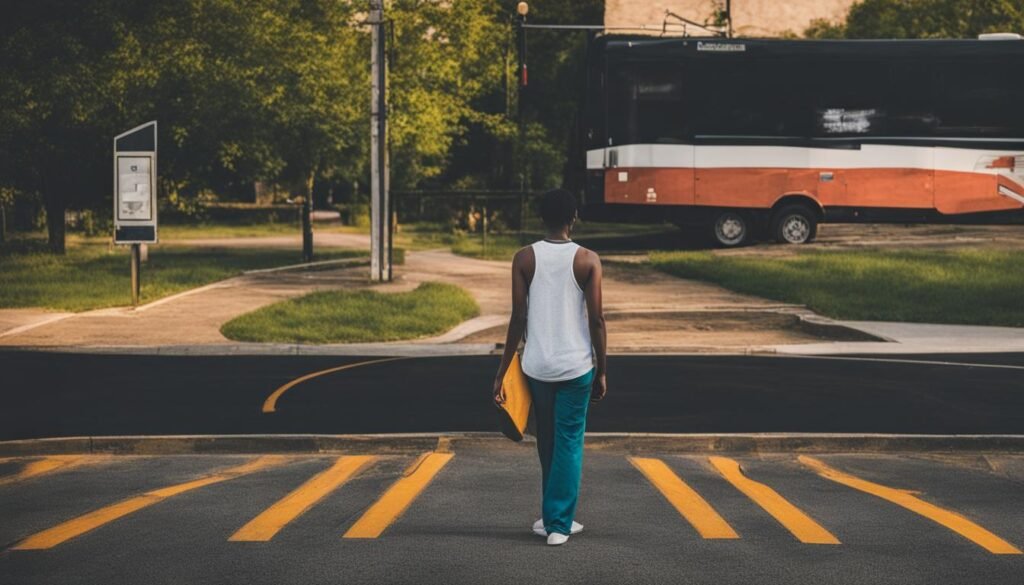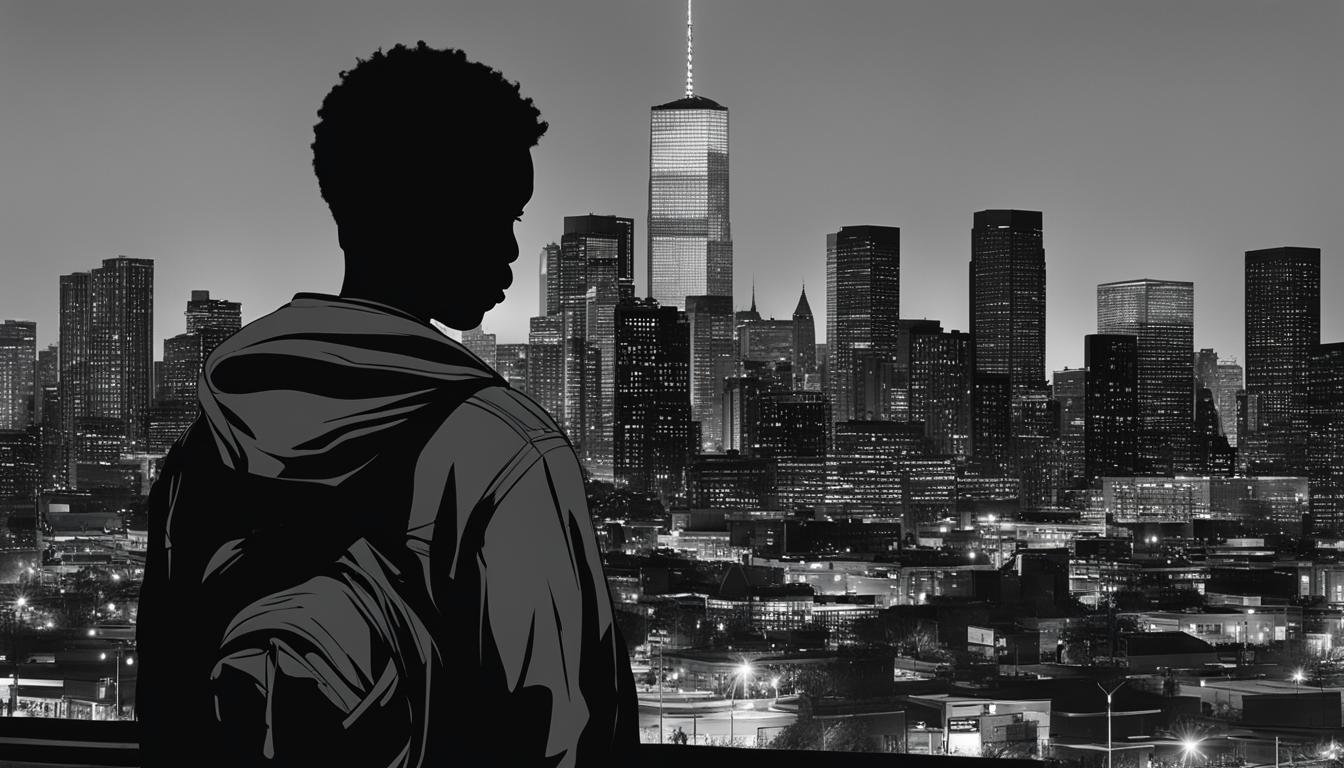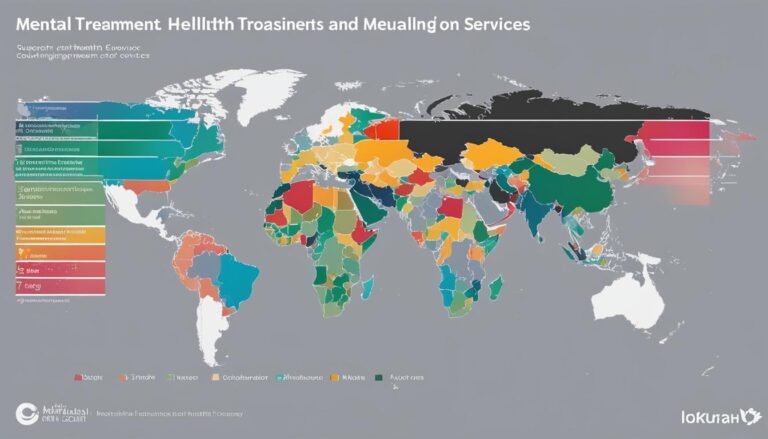What are the top mental health issues in the black community?
Mental health is a significant concern in the black community, as individuals face unique challenges that contribute to mental health disparities. Historical experiences of trauma, systemic racism, and limited access to care are among the factors that impact the mental well-being of black individuals.
While mental health conditions occur in black and African American (B/AA) people at similar rates as in white Americans, the historical context of the black community in America plays a crucial role. The experiences of dehumanization, oppression, and violence have led to trauma, resulting in emotional and mental health challenges.
Mental health disparities in the black community are also influenced by limited access to care. Mistrust of the medical system, inadequate health insurance coverage, and a lack of culturally competent providers contribute to the challenges black individuals face in seeking appropriate treatment.
Furthermore, the stigma around mental health within the black community often prevents individuals from seeking support. This stigma can further exacerbate mental health issues and hinder the healing process.
Key Takeaways:
- The black community faces mental health disparities influenced by historical and societal factors.
- Access to mental health care is limited for many black individuals.
- Stigma surrounding mental health within the black community discourages seeking treatment.
- Historical trauma and systemic racism contribute to poor mental health outcomes for black individuals.
- Addition to mental health issues, black individuals often experience socioeconomic disparities and other challenges.
Historical and Societal Factors Affecting Black Community Mental Health
Historical trauma, the impact of racism, socioeconomic disparities, and stigma within the black community are all significant factors that contribute to the mental health challenges faced by Black individuals in America.
The historical experiences of dehumanization, oppression, and violence against Black and African American people have led to long-lasting trauma. These historical traumas continue to have detrimental effects on the mental well-being of many individuals within the black community.
Racism, both overt and systemic, plays a crucial role in the mental health disparities experienced by Black individuals. The continual exposure to racism leads to chronic stress and emotional distress, increasing the risk of developing mental health conditions. Racism is not only experienced on an individual level but is also perpetuated through societal structures and institutions, further exacerbating its impact on mental health.
Socioeconomic disparities are closely linked to mental health outcomes. Black and African American individuals are more likely to live in poverty, which can result in heightened stress levels, limited access to adequate healthcare, and increased exposure to adverse environmental conditions. These socioeconomic factors significantly impact mental well-being and contribute to the disproportionate rates of mental health conditions within the black community.
Stigma surrounding mental health remains prevalent within the black community, often discouraging individuals from seeking the help and support they need. Negative attitudes and beliefs about mental health can create barriers to accessing treatment, perpetuating a cycle of untreated mental health conditions.
“The historical trauma endured by Black individuals, coupled with the ongoing impact of racism, socioeconomic disparities, and stigma, has created a mental health crisis within the black community.”
To further illustrate the impact of these factors, consider the following table:
| Factor | Impact on Black Mental Health |
|---|---|
| Historical Trauma | Contributes to long-lasting psychological effects and increased vulnerability to mental health conditions. |
| Racism | Leads to chronic stress, emotional distress, and higher rates of mental health conditions within the black community. |
| Socioeconomic Disparities | Limited access to quality healthcare, increased exposure to adverse environments, and heightened stress levels impact mental well-being. |
| Stigma within the Black Community | Creates barriers to seeking treatment, perpetuating the cycle of untreated mental health conditions. |
The combination of historical traumas, racism, socioeconomic disparities, and stigma has created a mental health crisis within the black community. Addressing these factors and promoting mental health equity is essential to support the well-being of Black individuals and foster a society that prioritizes the mental health of all its members.
Prevalence of Mental Health Issues in the Black Community
Understanding the prevalence of mental health issues within the Black community is crucial for addressing the unique challenges faced by individuals in this population. Various factors contribute to the higher rates of mental health conditions among Black and African American individuals, including socioeconomic disparities, historical trauma, and systemic racism.
Depression Rates Among Black Individuals
Depression is a common mental health condition that affects individuals of all backgrounds. However, research has shown that depression rates are higher among Black individuals compared to their white counterparts. According to a study conducted by the National Institute of Mental Health, African Americans were found to have a higher prevalence of depressive episodes compared to non-Hispanic whites (source).
The reasons behind the higher rates of depression among Black individuals are multifaceted. Factors such as discrimination, socioeconomic inequality, and limited access to mental health care contribute to the increased vulnerability to depression within the Black community.
Suicide Rates in the Black Community
Suicide is a deeply concerning issue that requires attention and support. While suicide rates are generally lower among Black individuals compared to white individuals, it is important to note that Black teenagers have higher rates of suicide attempts than their white counterparts (source). The reasons for this disparity are complex and can be attributed to a combination of various factors, including discrimination, systemic racism, and the stigma surrounding mental health within the Black community.
Substance Use in the Black Community
Substance use disorders can significantly impact an individual’s mental health and overall well-being. Among Black and African American adults with mental illnesses, substance use, including binge drinking and illicit drug use, is more frequent compared to other racial/ethnic groups (source). It is crucial to address the underlying factors, such as historical trauma, discrimination, and limited access to quality healthcare, that may contribute to these higher rates of substance use within the Black community.
Understanding the prevalence of mental health issues, including depression, suicide rates, and substance use, is essential for developing effective strategies and interventions to support the mental well-being of Black individuals. Addressing these disparities requires a comprehensive approach that includes reducing stigma, improving access to culturally competent mental health care, and promoting mental health awareness within the Black community.
Barriers to Mental Health Care for Black Individuals
Disparities in access to mental health care and treatment continue to pose significant challenges for the Black and African American community. These barriers prevent individuals from receiving the care they need to address their mental health concerns. Several key factors contribute to the existing disparities, including health insurance disparities, distrust of the medical system, and a lack of culturally competent providers.
Access to Mental Health Care
One of the primary barriers faced by Black individuals seeking mental health care is the lack of access to affordable and comprehensive health insurance. Many Black Americans do not have health insurance, making it difficult for them to afford essential mental health services. Even those who have health insurance may encounter limitations in their coverage or face high out-of-pocket costs, making it challenging to access the care they need.
Distrust of the Medical System
Mistrust of the medical system is another significant barrier to mental health care in the Black community. Historical experiences of medical exploitation, such as the Tuskegee Syphilis Study, have contributed to a deep-rooted skepticism and mistrust of healthcare providers. This distrust can create hesitancy in seeking help for mental health conditions, as individuals may fear being mistreated or misunderstood by healthcare professionals.
Lack of Culturally Competent Providers
The shortage of culturally competent mental health providers is a critical barrier for Black individuals. Culturally competent care considers the unique cultural, social, and historical experiences of Black Americans, allowing for more effective treatment. However, the lack of diverse providers who understand these specific needs can result in misdiagnosis, inadequate treatment, and a lack of cultural understanding within therapeutic relationships.
Addressing these barriers requires a multilayered and comprehensive approach. It involves improving access to affordable health insurance, fostering trust-building efforts within the medical system, and increasing the number of culturally competent providers in the field of mental health. Additionally, raising awareness about the importance of mental health and reducing the stigma within the Black community is crucial for encouraging individuals to seek the care they need.

Impact of Racism and Trauma on Black Mental Health
Racism and trauma have profound impacts on the mental health of Black and African American individuals. The pervasive nature of systemic racism, coupled with intergenerational trauma within the black community, contributes to the disproportionate burden of mental health issues experienced in this population.
Racism, as a form of chronic stress, can lead to emotional distress and psychological strain, resulting in higher rates of mental health conditions among Black individuals. The daily experiences of racism and discrimination can cause a range of adverse outcomes, including anxiety, depression, post-traumatic stress disorder (PTSD), and other stress-related disorders.
Intergenerational trauma, stemming from a history of slavery, segregation, and ongoing systemic inequities, further exacerbates mental health challenges in the black community. The transmission of trauma through generations can perpetuate a cycle of psychological distress and emotional trauma.
“Racism and discrimination are consistent stressors in the lives of African Americans, contributing to chronic health conditions, including mental illness.”
Social and environmental factors influenced by systemic racism also contribute to mental health disparities. Limited access to quality education, employment opportunities, safe neighborhoods, and healthcare services can create additional stressors and exacerbate the mental health burden within the black community.
Addressing the impact of racism and trauma on Black mental health requires a comprehensive approach that includes dismantling systemic racism, improving access to culturally competent mental health care, and promoting resilience and healing within the black community.
Mental Health Disparities in the Black Community
| Mental Health Condition | Prevalence in Black Community | Compared to White Individuals |
|---|---|---|
| Depression | Higher rates | 2-3 times more likely |
| Anxiety | Higher rates | 1.2 times more likely |
| Post-Traumatic Stress Disorder (PTSD) | Higher rates | 2 times more likely |
| Substance Use Disorders | Higher rates | 1.2 times more likely |
Mental health disparities in the black community are evident across various conditions, with higher prevalence rates compared to white individuals. These disparities emphasize the urgent need for targeted interventions, community support, and increased access to mental health resources.
Conclusion
Promoting mental health equity and supporting the mental health of Black and African American individuals is of utmost importance. The black community faces unique challenges when it comes to accessing mental health care, but there are resources available to help bridge the gap.
One valuable resource is the Black Emotional and Mental Health Collective (BEAM), which provides support, education, and resources specifically tailored to the black community. BEAM aims to dismantle the barriers that prevent black individuals from accessing quality mental health care, offering a range of services including therapy, workshops, and advocacy.
Another important organization is the Boris Lawrence Henson Foundation, established by actress Taraji P. Henson. With a focus on African American mental health, the foundation aims to provide resources, raise awareness, and reduce stigma surrounding mental health issues within the black community. They offer scholarships for black students pursuing careers in the mental health field and have partnered with various mental health organizations to improve access to care.
To address the mental health challenges in the black community, it is essential to tackle systemic racism, improve access to culturally competent care, and reduce the stigma surrounding mental health. By supporting black mental health, we can work towards a more equitable society where everyone has access to the care they need.
FAQ
What are the top mental health issues in the black community?
The top mental health issues in the black community include depression, anxiety disorders, post-traumatic stress disorder (PTSD), and substance use disorders. These conditions are often influenced by historical trauma, racism, socioeconomic disparities, and inadequate access to mental health care.
How do historical and societal factors affect black community mental health?
Historical factors such as trauma, oppression, and violence against black individuals have a significant impact on their mental health. The experiences of racism and discrimination contribute to chronic stress and emotional distress, leading to higher rates of mental health conditions. Socioeconomic disparities and stigma within the black community also contribute to poor mental health outcomes.
What is the prevalence of mental health issues in the black community?
Black individuals are more likely to experience chronic and persistent mental health conditions compared to their white counterparts. Depression rates among black individuals are higher, and black teenagers have higher rates of suicide attempts. Substance use, including binge drinking and illicit drug use, is also more frequent among black adults with mental illnesses.
What barriers do black individuals face in accessing mental health care?
Black individuals often face barriers in accessing mental health care due to disparities in health insurance coverage, lack of trust in the medical system, and inadequate cultural competence among providers. These barriers contribute to lower rates of mental health care utilization and delay in seeking treatment.
How does racism and trauma impact black mental health?
Racism can lead to chronic stress and emotional distress, resulting in higher rates of mental health conditions in the black community. Direct experiences of racism and intergenerational trauma further contribute to poor mental health outcomes. Addressing systemic racism and providing support for racial trauma are crucial in promoting better mental health among black individuals.
How can we support black mental health and promote mental health equity?
Supporting black mental health requires addressing systemic racism, improving access to culturally competent care, and reducing stigma within the black community. Resources such as the Black Emotional and Mental Health Collective (BEAM) and the Boris Lawrence Henson Foundation provide support and education for black individuals seeking mental health care. Promoting mental health equity involves ensuring equal access to quality mental health services for all individuals, regardless of their race or ethnicity.






